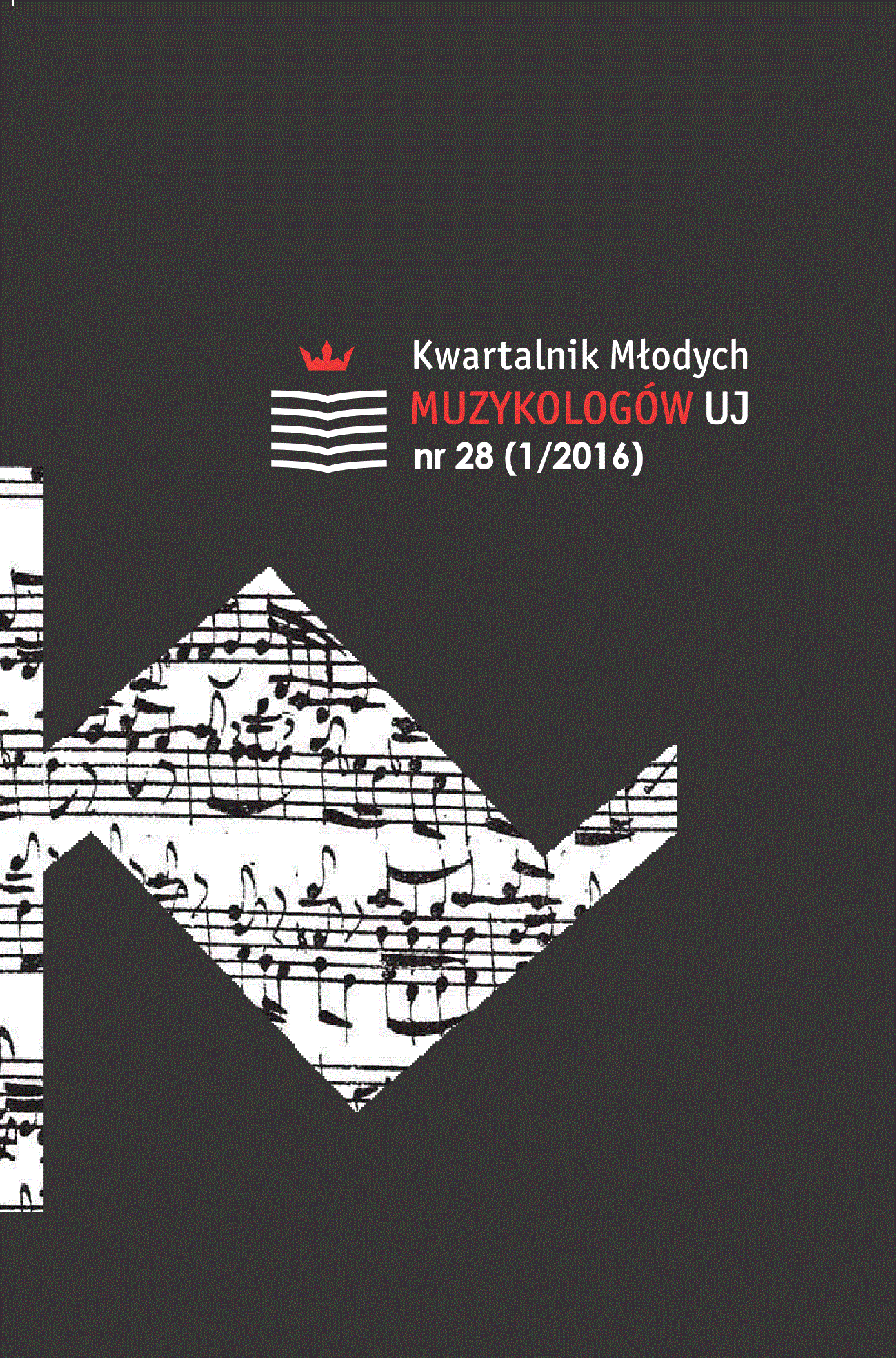Kadry muzyką opatrzone
Film stills with the accompaniment of music
On the short cooperation of Witold Lutosławski and filmmakers
Author(s): Wioleta MurasSubject(s): Fine Arts / Performing Arts, Cultural history, Music, Essay|Book Review |Scientific Life, Visual Arts, Sociology, Social history, Recent History (1900 till today), Sociology of Culture, Pre-WW I & WW I (1900 -1919), Interwar Period (1920 - 1939), Cultural Essay, Film / Cinema / Cinematography, Sociology of Art
Published by: Koło Naukowe Studentów Muzykologii UJ
Keywords: Witold Lutosławski; film; film music
Summary/Abstract: Creation of film music is only an episode in all of Witold Lutosławski’s way of oeuvre. He composed music to five films – three of which were not preserved (short films from the 1930s), two others that have been preserved were middle-feature films from the 1940s. This article is an attempt to reconstruct the character of the cooperation between Lutosławski and the directors, outlining the historical context and the circumstances of the works’ creation, and in case of the preserved films, to discuss their musical aspect. Uwaga – komunikat filmowy z frontu pracy (Beware! A Film Communiqué from the Front Lines of Work, 1934) and Gore! (Fire!, 1936) were directed by Eugeniusz Cękalski in cooperation with Stanisław Wohl. Zwarcie (Short Circuit, 1935) was created by Franciszka and Stefan Themerson. We know very little about Lutoslawski’s music in these films, but it was always appreciated in press reviews. After the Second World War documentary films became popular, but they contained propaganda features, which aimed to inform about the scale of devastation of Polish territory. One of them was Odrą do Bałtyku (Via the Oder to the Baltic, 1946) directed by Stanisław Urbanowicz. The sound element of the film has largely an illustrative character (in neoclassical style), it is a background for the narrative’s comment. Various arrangements of songs (Zasiali górale [The mountain people have sown], Przybyli ułani pod okienko [The lancers have come to the window]) which are incorporated in the soundtrack, underline the propaganda message of the film. The last film with Lutosławski’s music was Suita warszawska (Warsaw Suite, 1946) directed by Tadeusz Makarczyński. Again we can hear illustrative music, even real music (urban folk – polka and waltz), but sometimes music is more independent and abstract. After that the composer got several proposal to write film music, but he did not undertake this anymore (mainly for financial and time reasons).
Journal: Kwartalnik Młodych Muzykologów UJ
- Issue Year: 2016
- Issue No: 01 (28)
- Page Range: 5-31
- Page Count: 27
- Language: Polish

